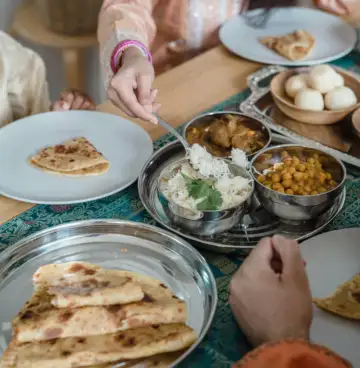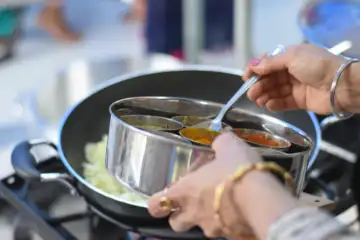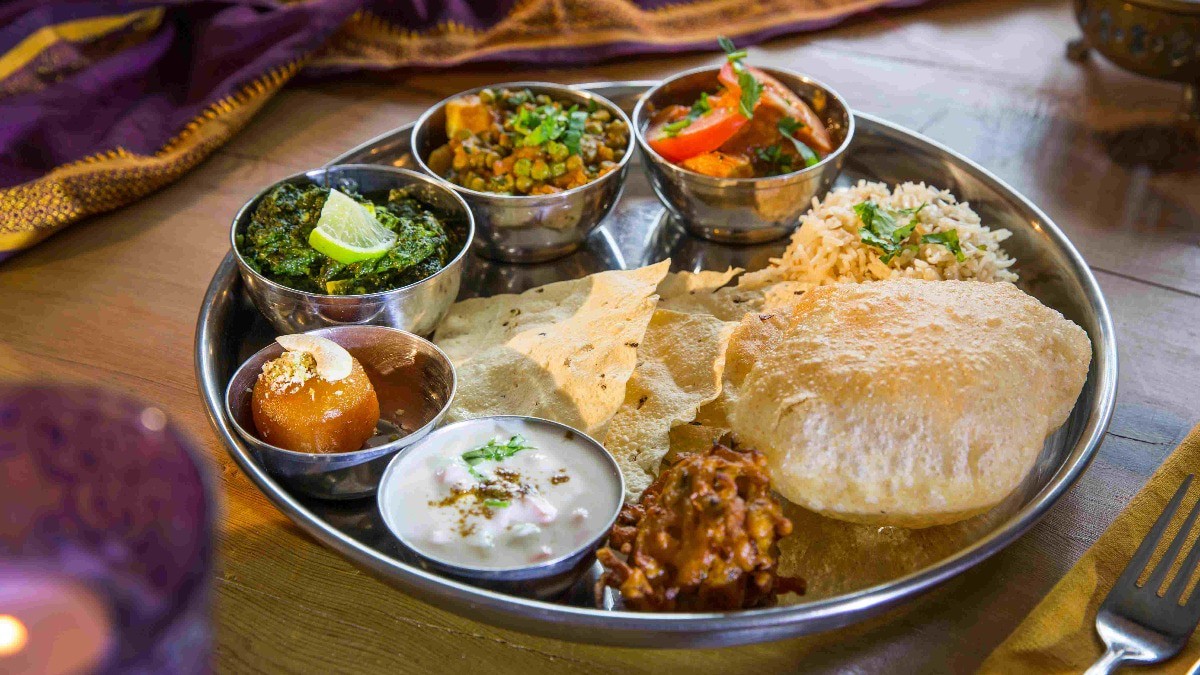Why are you always eating out? It’s unhealthy!” If you grew up in an Indian household, chances are you’ve heard your parents say this every time you head out for a meal.
Home-cooked food, indeed, is considered healthier. You know it is hygienic; you are sure of the quality of ingredients going in; you know there is no addition of harmful preservatives. Not to forget, there’s that amount of love that goes in.
Research supports this too. “Compared to pre-prepared meals, fully and partly home-cooked meals in diverse families with young children are more likely to include nutritious ingredients,” states a 2019 study on the nutritional benefits of home-cooked food.
Health experts also highly recommend eating homemade meals over ordering from outside, especially now, with a plethora of restaurant options and the convenience of food delivery. When food is just a few clicks away from your doorstep, who wants to take time out of an already-hectic schedule to cook a meal in the kitchen? But health experts urge you to resist that temptation of eating out – for all the right reasons.
 Health experts suggest eating home-cooked food over eating out or ordering online from restaurants. (Photo: Pexels)”Home-cooked meals are often healthier because you control the quality of ingredients, portion sizes, and cooking methods. Restaurants and outside vendors may use excessive amounts of oil, salt, and preservatives to enhance flavour and increase shelf life, which can contribute to various health issues like obesity, hypertension, and cardiovascular diseases. Furthermore, home-cooked food is usually fresher, and you can ensure better hygiene standards, which reduces the risk of foodborne illnesses,” says Priya Paliwal, chief dietitian at Sri Balaji Action Medical Institute, Delhi.
Health experts suggest eating home-cooked food over eating out or ordering online from restaurants. (Photo: Pexels)”Home-cooked meals are often healthier because you control the quality of ingredients, portion sizes, and cooking methods. Restaurants and outside vendors may use excessive amounts of oil, salt, and preservatives to enhance flavour and increase shelf life, which can contribute to various health issues like obesity, hypertension, and cardiovascular diseases. Furthermore, home-cooked food is usually fresher, and you can ensure better hygiene standards, which reduces the risk of foodborne illnesses,” says Priya Paliwal, chief dietitian at Sri Balaji Action Medical Institute, Delhi.
However, this does not mean you can eat anything and everything just because it is cooked at home. Contrary to popular belief, home food is not always healthy.
What can go wrong with home food? A lot.
To make food tastier, many of us tend to go extra with oil, butter, sugar, or spices. You know how that extra spoonful of ghee or butter is often an Indian mum’s ultimate love language.
Similarly, having deep-fried dishes (even if cooked at home) daily can lead to health issues. “Home food is unhealthy when there is excessive use of oil, sugar, and salt. Many people now also use several processed items like ginger-garlic paste or tomato puree for food preparations, which often contain harmful preservatives and food colours,” says dietitian Vidhi Chawla, founder of Fisico Diet and Aesthetic clinic in Delhi.
“Cooking food with too much oil, sugar, or salt can cause heart problems, diabetes, or hypertension. Deep-frying or overcooking vegetables destroys the nutrients present in them,” adds Parmeet Kaur, chief nutritionist and dietitian at Marengo Asia Hospital, Gurugram.
 Don’t go overboard with salt, sugar and oil while cooking food. (Photo: Pexels)Not just deep-frying but overcooking is also a problem. “Overcooking vegetables can strip them of essential nutrients. Also, avoid cooking on a high flame,” says Vidhi.
Don’t go overboard with salt, sugar and oil while cooking food. (Photo: Pexels)Not just deep-frying but overcooking is also a problem. “Overcooking vegetables can strip them of essential nutrients. Also, avoid cooking on a high flame,” says Vidhi.
Portion size is another big issue that can make home-cooked food work against your health goals. Excess calorie intake, even from home-prepared food, can lead to weight gain, metabolic changes, digestive issues, and an increased risk of chronic diseases.
“Just because food is made at home doesn’t mean it should be consumed in large quantities,” says Paliwal. Whether it is kheer, aloo-poori, biryani, sambar rice, or a regular roti with sabzi, don’t regularly indulge in overeating.
Now comes the most troublesome and common bit: skipping food groups. The different food groups include fruits, vegetables, grains, protein sources (such as meat, legumes, and nuts), dairy, and fats and oils. These provide essential nutrients for a balanced diet.
If a plate full of rice and rajma (or any lentil/curry) is what your lunches look like, you are doing it horribly wrong. Where’s the salad for fibre? Or the raita as a probiotic? Or the green chutney for micronutrients?
“A plate that consists mainly of one or two food groups, such as three rotis with dal or just rajma and rice, lacks variety and can lead to nutritional deficiencies. Meals should ideally consist of a balance between carbohydrates, proteins, fats, and fibre,” says dietitian Paliwal.
A primary focus on rice/roti is another issue that promotes nutritional imbalance.





